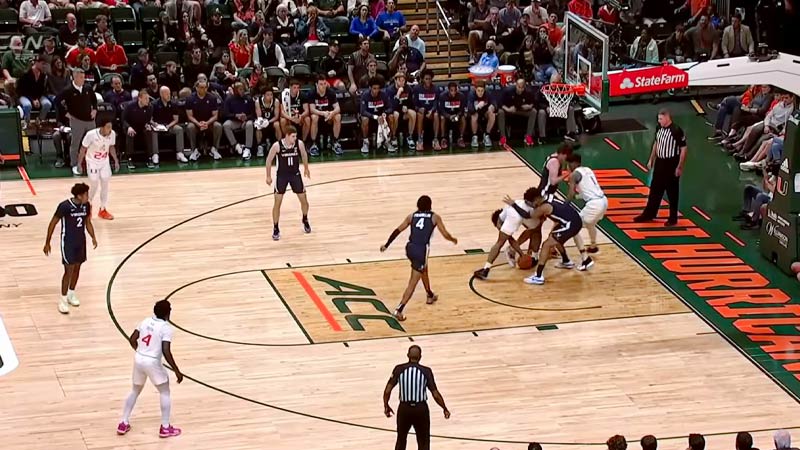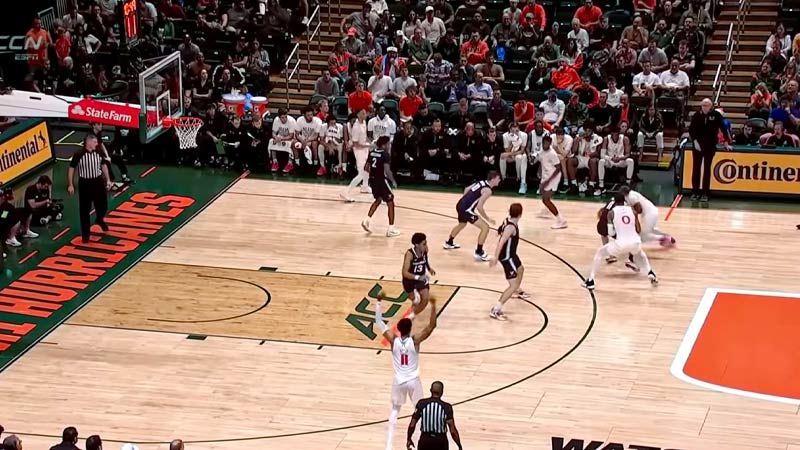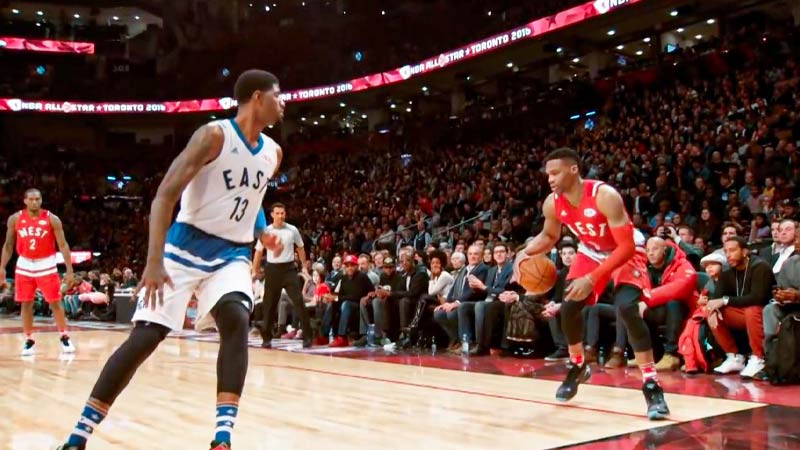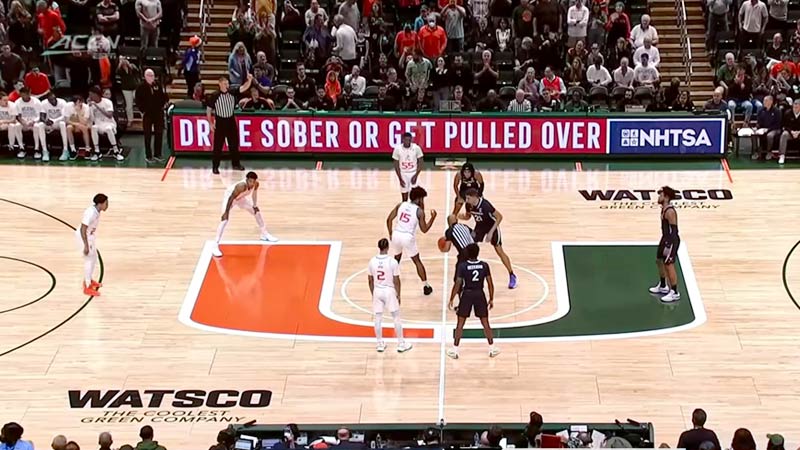In the world of basketball, you may often come across the acronym “DNP” when looking at player statistics or game recaps. But what does the DNP actually stand for?
In this article, we will delve into the meaning of DNP in basketball, understand when a player receives a DNP, explore the significance of DNP in the context of the game, delve into the box score’s role in DNP, and trace the history of DNP in basketball.
By the end of this article, you’ll have a comprehensive understanding of this term and its importance in the sport.
What Does DNP Stand for in Basketball?
DNP stands for “Did Not Play” in the context of basketball. It is used to indicate that a player did not participate in a particular game.
There can be various reasons for a player receiving a DNP, such as injury, illness, coach’s decision, or being inactive.
The term is commonly used in player statistics and game recaps to denote non-participation.
When a Player Gets DNP?
When a player receives a DNP (Did Not Play) in a game, it simply means that they did not participate in that specific match.
However, it is important to understand that there can be several reasons behind a player receiving a DNP, and it doesn’t necessarily reflect poorly on their performance or skill level.
One common reason for a DNP is injury or illness. If a player is dealing with an injury or is unwell, it is in their best interest to sit out the game to avoid exacerbating their condition or risking further harm.
In such cases, the coaching staff and medical team may decide to rest the player and prioritize their long-term health and recovery.
Another reason for a DNP can be a coach’s decision. Coaches make strategic choices based on various factors such as game plans, matchups, team dynamics, and player rotations.
They may opt to give certain players more playing time to exploit specific strengths or adapt to the opponent’s style of play. This means that even talented and capable players can receive a DNP due to the coach’s strategic decision-making process.
Additionally, a player may receive a DNP if they are listed as inactive for the game. This could be due to factors like disciplinary reasons, team dynamics, or simply the coach’s preference for other players on the roster.
In such cases, it does not necessarily reflect the player’s abilities but rather the circumstances surrounding the team at that particular time.
It’s important to remember that basketball is a team sport, and individual playing time can vary from game to game. Receiving a DNP should not be taken as a reflection of a player’s worth or potential.
The Box Score in the Context of DNP

The box score is a vital tool in basketball analysis, offering a comprehensive statistical overview of a game’s performance. It provides valuable insights into individual and team contributions, including points scored, rebounds, assists, steals, blocks, and other relevant statistics.
However, the box score also serves another crucial purpose – it sheds light on a player’s availability and playing time, particularly when a player does not participate in a game, known as a “Did Not Play” or DNP.
DNP is a common abbreviation used in the box score to indicate that a player did not see any playing time during the game. It is typically listed next to the player’s name or within a separate section dedicated to player absences.
This notation helps track and document a player’s involvement throughout the season, highlighting instances where they were unable to participate due to various reasons such as injuries, the coach’s decision, or other circumstances.
The inclusion of DNP in the box score serves several purposes and carries significance for teams, coaches, analysts, and fans alike. Let’s explore some key aspects that make DNP an essential component of the box score:
Tracking Availability and Rest
DNP allows teams and coaching staff to monitor a player’s availability and rest patterns. It provides an overview of the number of games a player has missed or sat out, which can be crucial for injury management, workload balancing, and player rotation strategies.
Evaluation and Analysis
For analysts, the presence of DNP in the box score provides essential information for evaluating a player’s impact on the game. It allows them to compare performance metrics for games in which a player participated versus games in which they did not, providing a comprehensive view of their overall contribution to the team.
Significance of DNP in Basketball

In the world of basketball, the acronym DNP (Did Not Play) carries significant importance. It serves as a reflection of a player’s participation or absence in a game, which can have profound implications for team dynamics, strategy, and individual player statistics.
Coaches carefully manage their players’ minutes, taking into account factors such as fatigue, matchups, and game situations, and the decision to assign a DNP can greatly impact various aspects of the game.
Team Dynamics and Strategy
The use of a DNP can heavily influence team dynamics. Coaches strategically determine which players to utilize based on their skills, strengths, and the specific requirements of the game.
By assigning a DNP to certain players, coaches can adjust team rotations, alter playing time distributions, and optimize the utilization of their roster. This decision can affect team chemistry, the flow of the game, and the overall performance on the court.
Individual Player Statistics
DNP has a direct impact on individual player statistics. When a player receives a DNP, their playing time is reduced or completely eliminated, which in turn affects their ability to accumulate points, rebounds, assists, and other statistical categories.
This can have implications for player rankings, awards, and evaluations. Additionally, DNP can influence a player’s perception in terms of their contributions to the team and their overall value.
Assessing Player Availability
DNP serves as a measure of a player’s availability. Factors such as injuries, illnesses, disciplinary actions, or strategic decisions by the coaching staff can result in a player not participating in a game.
The notation of DNP provides transparency and clarity regarding a player’s status, ensuring accurate record-keeping and allowing teams, fans, and analysts to understand the reasons behind a player’s absence.
Highlighting Team Depth and Versatility

The utilization of DNP can shed light on the depth and versatility of a team’s roster. By strategically managing playing time and assigning DNP to certain players, coaches can showcase the strength and capabilities of their bench players.
This allows teams to maintain a high level of performance even when star players are resting or unavailable. It also provides opportunities for lesser-known or younger players to gain experience and contribute to the team’s success.
History of DNP in the Context of Basketball
The concept of DNP has been an integral part of basketball for many years, evolving alongside the sport itself. In the early stages of basketball, player statistics were limited to basic categories such as points, rebounds, and assists.
However, as the game progressed and advanced statistical analysis became more prevalent, there was a need for a comprehensive tracking system that encompassed a player’s non-participation.
DNP emerged as a shorthand notation to capture instances when a player did not play in a game. This notation ensures accurate record-keeping and allows for more detailed statistical analysis.
Over time, the use of DNP has become standardized and widely accepted within the basketball community.
Today, DNP serves as an essential component of game records and statistical analysis. It provides valuable insights into player availability, team dynamics, and strategic decisions made by coaches.
The history of DNP reflects the ongoing development and evolution of basketball as a sport, as well as the growing emphasis on data-driven analysis and decision-making.
FAQs
Can a player receive multiple DNPs in a row?
Yes, a player can receive multiple DNPs in a row for various reasons such as injury recovery, the coach’s decision, or specific game strategies. It does not necessarily indicate a permanent change in their role within the team.
How does DNP affect a player’s statistics?
When a player receives a DNP, they do not contribute to the game’s statistics. This absence can impact their season averages, playing time, and statistical comparisons with other players.
Is DNP always a negative indication for a player?
Not necessarily. While a DNP may indicate a player’s absence from a game, it is often a tactical decision made by the coach based on various factors. It does not always reflect negatively on the player’s skills or abilities.
Can a player receive a DNP due to disciplinary reasons?
Yes, in certain cases, a player may receive a DNP as a disciplinary measure imposed by the team or coaching staff. This can occur if the player violates team rules or exhibits conduct detrimental to the team.
Are there different variations of DNP?
Yes, to provide more specific details regarding a player’s absence, variations of DNP can be used. These include DNPCD (Did Not Play – Coach’s Decision), DNPS (Did Not Play – Suspension), DNPO (Did Not Play – Other), and more.
Bottom Line
DNP, short for “Did Not Play,” is a common term used in basketball to indicate a player’s non-participation in a game.
It holds significance in tracking player availability, team strategies, and statistical analysis. While a DNP may arise due to various factors, it does not necessarily reflect negatively on a player’s abilities.
DNP enhances our comprehension of player performance, team dynamics, and the intricacies of the game. Best of luck.







